Related Research Articles

Carol Lani Guinier was an American educator,legal scholar,and civil rights theorist. She was the Bennett Boskey Professor of Law at Harvard Law School,and the first woman of color appointed to a tenured professorship there. Before coming to Harvard in 1998,Guinier taught at the University of Pennsylvania Law School for ten years. Her scholarship covered the professional responsibilities of public lawyers,the relationship between democracy and the law,the role of race and gender in the political process,college admissions,and affirmative action. In 1993 President Bill Clinton nominated Guinier to be United States Assistant Attorney General for Civil Rights,but withdrew the nomination.

Proposition 209 is a California ballot proposition which,upon approval in November 1996,amended the state constitution to prohibit state governmental institutions from considering race,sex,or ethnicity,specifically in the areas of public employment,public contracting,and public education. Modeled on the Civil Rights Act of 1964,the California Civil Rights Initiative was authored by two California academics,Glynn Custred and Tom Wood. It was the first electoral test of affirmative action policies in North America. It passed with 55% in favor to 45% opposed,thereby banning affirmative action in the state's public sector.

The NAACP Legal Defense and Educational Fund,Inc. is an American civil rights organization and law firm based in New York City.

Constance Baker Motley was an American jurist and politician,who served as a Judge of the United States District Court for the Southern District of New York.
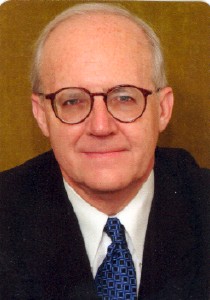
Danny Julian Boggs is an American attorney and a senior United States circuit judge of the United States Court of Appeals for the Sixth Circuit. He was appointed to the court in 1986 and served as its chief judge from September 2003 to August 2009. Boggs was on the short list of President George W. Bush's candidates for the U.S. Supreme Court.
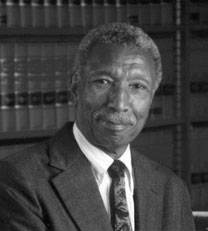
Robert Lee Carter was an American lawyer,civil rights activist and a United States district judge of the United States District Court for the Southern District of New York.
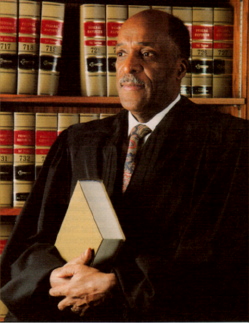
Nathaniel Raphael Jones was an American attorney,judge,and law professor. As general counsel of the NAACP,Jones fought to end school segregation,including in the northern United States. From 1979 until 1995,he served as a United States circuit judge of the United States Court of Appeals for the Sixth Circuit before assuming senior status,and in 2002 retired to resume a private legal practice.
The Lawyers' Committee for Civil Rights Under Law,or simply the Lawyers' Committee,is an American civil rights organization founded in 1963 at the request of President John F. Kennedy.

Julius LeVonne Chambers was an American lawyer,civil rights leader and educator.

Bill Lann Lee is an American civil rights attorney who served as Assistant United States Attorney General for the Civil Rights Division for the United States Department of Justice Civil Rights Division under President Bill Clinton.
John A. Payton was an African-American civil rights attorney. In 2008,he was appointed the sixth president and director-counsel of the NAACP Legal Defense Fund serving in that post until his death. Prior to this,he was a partner at the law firm WilmerHale for 20 years.
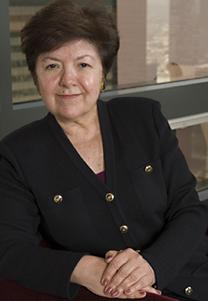
Vilma Socorro Martínez is an American lawyer,civil rights activist and diplomat who formerly served as the U.S. Ambassador to Argentina from 2009 to 2013 under President Barack Obama.
Schuette v. BAMN,572 U.S. 291 (2014),was a landmark decision of the Supreme Court of the United States concerning affirmative action and race- and sex-based discrimination in public university admissions. In a 6-2 decision,the Court held that the Fourteenth Amendment's Equal Protection Clause does not prevent states from enacting bans on affirmative action in education.
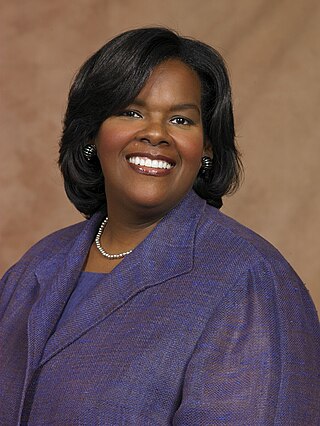
Jacqueline Ann Berrien,often known as Jackie Berrien,was an American civil rights attorney and government official. From 2009 to 2014,Berrien served as chair of the Equal Employment Opportunity Commission (EEOC) under President Barack Obama. Prior to this,Berrien had served as Associate Director Counsel for the NAACP Legal Defense and Educational Fund.

Sherrilyn Ifill is an American lawyer and the Vernon E. Jordan,Jr.,Esq. Endowed Chair in Civil Rights at Howard University. She is a law professor and former president and director-counsel of the NAACP Legal Defense Fund. She was the Legal Defense Fund's seventh president since Thurgood Marshall founded the organization in 1940. Ifill is a nationally recognized expert on voting rights and judicial selection. In 2021,Time named her one of the 100 most influential people in the world on its annual Time 100 list.
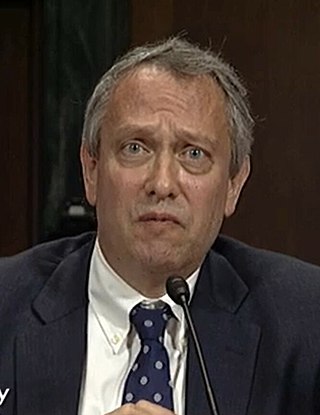
Thomas Alvin Farr is an American attorney. Farr was nominated by President Donald Trump for a judgeship on the United States District Court for the Eastern District of North Carolina in 2017,and again in 2018. Farr was considered a controversial nominee due to his alleged involvement in suppression of African-American voters. On November 29,2018,Republican U.S. Senators Jeff Flake and Tim Scott announced their opposition to Farr's nomination,together with unanimous opposition of Senate Democrats,made it impossible for Farr's nomination to be confirmed.

Janai Nelson is an American lawyer,who currently serves as the President and Director-Counsel of the NAACP Legal Defense Fund (LDF).
Lia Beth Epperson is an American civil rights lawyer and professor of law at American University Washington College of Law. She previously served as the senior associate dean for faculty and academic affairs at the law school. Epperson served as director for education litigation and policy at the NAACP Legal Defense and Educational Fund from 2001 to 2005. Her scholarship focuses primarily on federal courts and educational policies with regard to race. Epperson was a senior fellow at the Center for American Progress and an Institute of Advanced Studies Fellow at Collegium de Lyon. Epperson has authored multiple amicus briefs for the Supreme Court of the United States related to affirmative action and education law.

Holly Aiyisha Thomas is an American attorney serving as a United States circuit judge of the United States Court of Appeals for the Ninth Circuit. She previously served as a judge of the Los Angeles County Superior Court from 2018 to 2022.

Natasha Clarise Merle is an American lawyer from New York who serves as a United States district judge of the United States District Court for the Eastern District of New York.
References
- 1 2 3 4 5 6 7 Finkelman, Paul (2009). Encyclopedia of African American History 1896 to the Present: From the Age of Segregation to the Twenty-First Century. New York: Oxford University Press. p. 53. ISBN 978-0-19-516779-5.
- ↑ Raising the Bar: Pioneers in the Legal Profession: Elaine R. Jones (Featured Programs, ABA Division for Public Education)
- ↑ "2002 Honorees - Elaine R. Jones". Archived from the original on 2008-03-15. Retrieved 2008-03-25.
- ↑ "Member News -- Elaine Jones (T-8)", Arkadaslar.
- ↑ "1997-Elaine Jones". Archived from the original on 2009-05-15. Retrieved 2008-03-25.
- 1 2 3 "NAACP Legal Defense Fund - News". Archived from the original on 2006-02-13. Retrieved 2008-03-25.
- ↑ "RE:Unethical Conduct of Ms. Elaine Jones", CFIF.
- ↑ "May 28, 2004: Headlines: COS - Turkey: Civil Rights: Awards: Politics: Law: CNS News: At issue is whether Turkey RPCV Elaine Jones tried to influence the outcome of a high-profile affirmative action case by contacting aides to Sen. Ted Kennedy -- and urging them to recommend that Kennedy delay the Senate confirmation of Julia Smith Gibbons", Peace Corps Online.
- ↑ "Foremother Award". National Center for Health Research . May 9, 2016. Retrieved February 25, 2019.
- ↑ Graham, Lawrence Otis (2014). Our kind of people. [Place of publication not identified]: HarperCollins e-Books. ISBN 978-0-06-187081-1. OCLC 877899803.